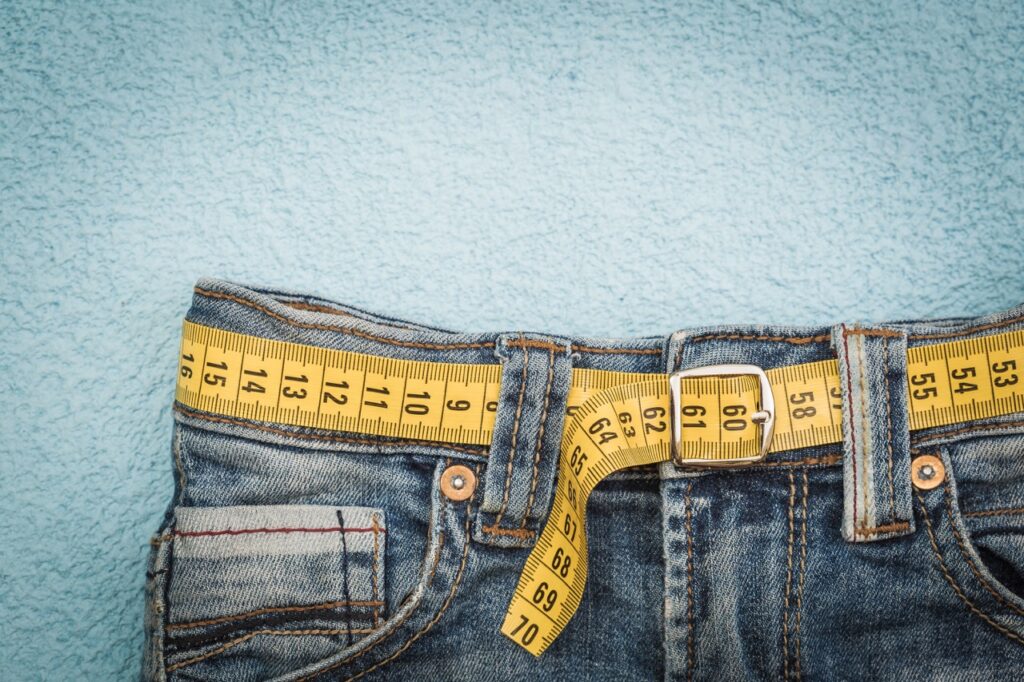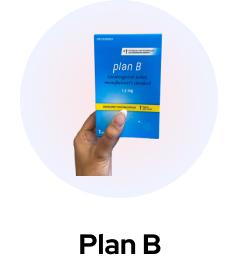Are you facing the frustrating and demotivating experience of a weight loss plateau? Rest assured, you’re not alone and they are a normal part of a weight loss journey. Many individuals, even those taking weight loss medications, hit a point where the scale seems stuck, despite continued efforts. Weight loss won’t always be perfectly linear. Some weeks will be consistent and other weeks you may lose less, maintain or even gain. All humans have fluctuations in their weight from day to day, week to week, month to month, etc.
Before we get into the tips themselves, a few questions to consider:
Some plateaus might be short term, and “eating too much” is not always the culprit. Consider your recent circumstances and if it is really a true plateau.
- Has your sedentary time has increased?
- Were you traveling and overindulged on treats or alcohol?
- Perhaps there is some fluid retention, bloating or constipation?
- Is the plateau is related to your menstrual cycle?
- Has your stress level increased?
- Have you begun to increase your strength training and perhaps experiencing body re-composition / increase in lean muscle mass? Remember that muscle weighs more than fat.
Breaking through a weight loss plateau is absolutely possible with the right approach and commitment. In this article, we will explore top expert tips to help you overcome this obstacle and achieve your weight loss goals.

- Re-evaluate Your Nutrition
One of the primary reasons for hitting a weight loss plateau is that your body has adapted to your current calorie intake. When you lose weight, your body requires fewer calories to maintain its current weight. Therefore, it’s crucial to reassess your caloric needs and potentially reduce your daily calorie intake.
While a calorie deficit is necessary to achieve weight loss, there is more to it than just “how much” you are eating. What and when you are eating will also greatly impact your efforts with weight loss.
Restricting calories too low may also set you up for a plateau. If your body isn’t getting the nourishment it requires, it will go into starvation mode and work to prevent any further weight loss from occurring.
Ultimately, the answer is not always to “cut more calories”. We want to look at the big picture and determine what factors are contributing to the plateau. Meet with your Registered Dietitian to determine if the types and amounts of food you are currently eating is supporting your weight loss goals.

- Diversify Your Workouts
If you’ve been losing weigh consistently by making changes to your nutrition alone, it may be time to start incorporating more physical activity into your life. And if you’ve been exercising already, your body can adapt to your workout routine, making it less effective over time. To overcome a weight loss plateau, diversify your workouts by incorporating different exercises, intensities, and durations. High-intensity interval training (HIIT) and strength training are excellent options to rev up your metabolism and stimulate weight loss. Chat with your Registered Kinesiologist to see what levers might need to be pulled here to get you out of that plateau.
Engaging in new physical activities not only keeps your routine exciting but challenges your body in different ways. This leads to increased calorie burn and muscle engagement, ultimately aiding in working through the plateau.
- Prioritize Quality Sleep
Sleep is a crucial factor that directly impacts your weight loss journey. Lack of sleep can lead to increased stress levels and disrupt hormonal balance, which can hinder weight loss progress. Aim for 7-9 hours of quality sleep per night to support your body’s ability to burn fat efficiently and regulate appetite.
Improving your sleep hygiene, such as establishing a consistent sleep schedule and creating a relaxing bedtime routine, can contribute to breaking the plateau and optimizing your weight loss efforts[^1].

- Stay Hydrated
Sometimes, seemingly insurmountable weight loss plateaus can be overcome by simply being more mindful of what you eat and drink. Good hydration makes it easier to control your portion sizes at meals and can help in maintaining a healthy metabolism. Drinking adequate water throughout the day can aid in weight loss by reducing overall calorie intake[^2].
Incorporate more fiber-rich foods like vegetables, fruits, and whole grains into your diet. Fiber keeps you feeling fuller for longer and can help in controlling your appetite, making it easier to maintain a calorie deficit[^3]. Lastly, choosing water most often and limiting any sugary or calorie dense fluids can also help you work through the plateau.
- Be Mindful of Portion Sizes
Even when consuming healthy foods, consuming large portions can prevent weight loss or cause a plateau. Practice portion control to ensure you’re not inadvertently consuming excess calories: sneaky extras can add lots of calories and not much nutrition. Think coffee cream, condiments like mayonnaise, cooking oils, salad dressings and butter. Use measuring cups, spoons, or a food scale to accurately gauge your portions and avoid overeating. If you’re on weight loss medications this likely won’t be as much of an issue for you as the medication helps to control appetite quite effectively.
Educate yourself about appropriate portion sizes and be mindful of serving sizes when dining out. By maintaining control over your portions, you’ll not only break through a weight loss plateau but also cultivate a healthier eating habit for the long term.
- Manage Stress Levels
Stress can be a significant roadblock to weight loss progress. High levels of stress trigger the release of cortisol, a hormone that can lead to increased fat storage, especially around the abdominal area[^4]. To combat stress, incorporate relaxation techniques such as meditation, deep breathing, or yoga into your daily routine. Read our blog post on how to manage stress reactions using the Circles of Control framework and Progressive Muscle Relaxation techniques.
Regular exercise is another effective stress-management tool that not only contributes to weight loss but also helps in reducing stress and anxiety. Make time for self-care and stress-reducing activities to help push past the weight loss plateau.

Conclusion
A weight loss plateau is a challenging phase that requires adjustments and perseverance. You may be getting close to a weight your body is happy and healthy at and therefore wants to maintain. That weight may not fit within a certain BMI range or be the pre-determined number on the scale you had hoped to see. Your genetics, environment, appetite system and of course your diet and lifestyle all contribute to the best weight for your body. By reevaluating your calorie intake, diversifying your workouts, prioritizing sleep, staying hydrated, monitoring portion sizes, and managing stress, you can successfully break through the plateau and continue your weight loss journey. We would also encourage you to reach out to your Wellness team for support – if you’re a part of the Weight Loss Program you get 30 minutes a month!
Find other ways to measure your progress and success beyond the number on the scale.
- Has your overall energy level improved?
- Improvements in chronic pain or mobility?
- Have you noticed any changes in your self esteem or body image?
- How are your clothes fitting? Have you taken measurements in different areas of you body? It is possible that you may be losing inches, even if you aren’t losing pounds.
- Have there been any improvements in the other markers of your health? Improvements in your blood sugar, insulin sensitivity, cholesterol, blood pressure, liver enzymes, sleep apnea, chronic pain and mobility can be seen with just a subtle 5-10% weight loss. That’s just 12.5 lb weight loss on a 250 lb person!
Remember, consistency and determination are key. Implement these expert tips, and you’ll be back on track towards achieving your weight loss goals. Stay committed, stay focused, and watch the scale tip in your favour.
# References:
- National Sleep Foundation. (n.d.). How Much Sleep Do We Really Need? (https://www.sleepfoundation.org/how-sleep-works/how-much-sleep-do-we-really-need)
- Popkin, B. M., D’Anci, K. E., & Rosenberg, I. H. (2010). Water, Hydration and Health. Nutrition Reviews, 68(8), 439–458. (https://doi.org/10.1111/j.1753-4887.2010.00304.x)
- Slavin, J. L. (2005). Dietary Fiber and Body Weight. Nutrition, 21(3), 411–418. (https://doi.org/10.1016/j.nut.2004.08.018)
- Epel, E., Lapidus, R., McEwen, B., & Brownell, K. (2001). Stress May Add Bite to Appetite in Women: A Laboratory Study of Stress-Induced Cortisol and Eating Behavior. Psychoneuroendocrinology, 26(1), 37–49. [https://doi.org/10.1016/s0306-4530(00)00035-4](https://doi.org/10.1016/s0306-4530(00)00035-4)
- Best weight theory(Obesity Canada, 2018)
Ready to start your weight loss journey?












 (US)
(US)